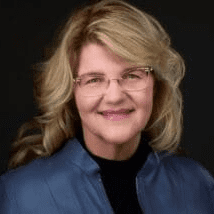It’s no surprise that a supervisory relationship can often be enlightening and steadying for both new and experienced therapists. But some therapists have received nuggets of supervisory insight so profound, they’re too good not to share. Read on and feel free to take or make this advice your own.
Self-Disclose with Care
My supervisor once told me there’s a direct correlation between our urgency to self-disclose in a client session, and our need to bite our tongues.
Self-disclosure can help clients by deepening the therapeutic alliance, inviting self-compassion, and normalizing their experiences. But when you feel pulled to share something from your own world, it’s best, she suggested, to first pause and get curious about your “why.” Are you going through something emotional yourself?
Because you haven’t processed the share ahead of time, you also run the risk of putting your client into a caretaking role, which could replicate their family of origin experience.
Finally, your desire to self-disclose may hold an important piece of data about your client; perhaps reflecting the depth of their loneliness. Your self-disclosure may fill that void, if only for a moment. But do explore what it’s also like to sit with them in their experience, and what other avenues warrant exploration.
Evanston, IL
Slow Down Their Slide and Be with Them
Some of the best advice I got from a supervisor came during my training, in a tough, underfunded school full of kids with mental health and trauma issues, and systems stacked against them.
They told me, “Sometimes, Chris, we don’t measure progress in yards and miles, sometimes we measure it in calipers. And sometimes—we just can’t pull people out of the cycles they’re stuck in. The best we can do is slow down their slide and be with them.”
For me, a bright-eyed young intern at the time, these words felt dark and devoid of hope, but during some of my more challenging cases. they helped me understand that there is a reason to keep going, even when it doesn’t feel like it. Even when we have to look for positive change with calipers.
Another piece of advice came from a wonderful supervisor, Leigh McCoullough, who spoke often about “affect phobia,” or how both clients’ and therapists’ fear of emotions, keeps them stuck.
When a client said, “If I start crying, I’m afraid I’ll never stop,” or if we supervisee therapists would say, “If she starts crying, I’m afraid she’ll never stop,” Leigh always reminded us that “eventually, clients run out of tears. Or more likely, they’ll have to go to the bathroom.”
That last line always cracked me up, and it also, when I shared it with them, helped clients see their predicament with a little humor.
Boston, MA
Cycle the Puck
Deep-seated, negative core beliefs are very difficult to change, even when there’s ample evidence against them. Plenty of clients have the core belief that they’re inadequate, for example, despite plenty of examples of their competence.
My practicum supervisor taught me that shifting longstanding, unhelpful beliefs is like the hockey technique of “cycling the puck.” Offensive players cycle the puck by staying in motion and continually passing it between each one another as they look for an opening to score.
In therapy, the “puck” that we can eventually score with is evidence against a core belief, like a client’s long list of professional accomplishments versus their feelings of being a loser.
Cycling the puck involves various efforts to help the client really see that the evidence that contradicts their core belief, such as us asking about their many successes or what they’d think of someone else with a similarly impressive track record.
A “goal” in this metaphor is when a key awareness clicks into place, shifting a fundamental way of seeing oneself, others, or the world.
But trying to force this change before the client is ready is like forcing a shot at an inopportune moment; it typically doesn’t work, and it’s frustrating for both the client and the therapist.
Rob helped me understand that meaningful cognitive change comes not from hammering away at a negative core belief, but through patiently helping the client weigh the evidence for and against their negative assumptions. When the moment is right and the net is open, the client will have the aha experience—of scoring that practical insight.
Ardmore, PA
Take the Comfy Chair
“The therapist should always sit in the most comfortable chair,” said Dr. B., at our group supervision for complex PTSD clients. I was in the first year of my psychology practicum at a community mental health center, where the furniture was threadbare and too many of my clients were unraveling. I saw children in foster care, couples who’d try to hit each other during sessions, clients who left me brass knuckles, knives, and other weapons so they wouldn’t hurt themselves or someone else, and the first of my trauma clients. After one of her sessions, this client ran out to her car, threatening to eat rat poison she’d purchased for a suicide attempt.
After this, I paid for outside monthly supervision with Dr. B—even though I could barely afford it with graduate school—along with four other therapists who had 20 years more experience than I did. We were all feeling totally incompetent trying to work with this diagnosis. I’ve come back to Dr. B’s words of wisdom often, which includes this: “if you’re holding too much of the client’s anxiety, pain, or anger, it means they don’t have to. If the client isn’t working harder than you are or is feeling less discomfort than you are, they don’t have a reason to struggle to change for themselves.”
I’ve since learned, when feeling out of my depth, to come back to this advice and figure out what the session is stirring up for me. I try to understand who’s feeling the emotion and how much or little of that I need to help the client carry. Then I take a deep breath, lean back in my comfy chair, and know I’ve got this.
Havertown, PA
Alexandra Solomon
Alexandra H. Solomon, PhD, is internationally recognized as one of today’s most trusted voices in the world of relationships, and her framework of Relational Self-Awareness has reached millions of people around the globe. A couples therapist, speaker, author, professor, podcast host, retreat leader, and media personality, Dr. Solomon is passionate about translating cutting-edge research and clinical wisdom into practical tools people can use to bring awareness, curiosity, and authenticity to their relationships. She is a clinician educator and a frequent contributor to academic journals and research, and she translates her academic and therapeutic experience to the public through her popular and vibrant Instagram page, which has garnered over 200K followers. She is on faculty in the School of Education and Social Policy at Northwestern University and is a licensed clinical psychologist at The Family Institute at Northwestern University. Her hit podcast, Reimagining Love, has reached listeners across the globe and features high-profile guests from the worlds of therapy, academia, and pop culture. Her latest bestselling book is Love Every Day. You can visit her online at DrAlexandraSolomon.com and on Instagram at @dr.alexandra.solomon.
Christopher Willard
Christopher Willard, PsyD, is one of the world’s leading experts on mindfulness with young people, having trained thousands of professionals and young people on the practice and benefits of mindfulness. He is a psychologist and consultant based in Boston, working individually as well as consulting to schools, hospitals and other organizations. Additionally, he is the author of multiple books on psychology, child development, contemplative practice and more. Dr. Willard is the president of the Mindfulness in Education Network and serves on the board of directors at the Institute for Meditation and Psychotherapy. In addition to serving on the faculty of Harvard Medical School, Dr. Willard leads courses and workshops around the world and online. Dr. Willard is the co-author of The Mindfulness Skills Activity Book for Children (PESI, 2018), and the author of Child’s Mind (Parallax Press, 2010), Growing Up Mindful (Sounds True, 2016) and numerous others. He is also the co-author of the bestselling Growing Mindful (PESI, 2015), Growing Mindful 2nd Edition (PESI, 2019), Growing Mindful Spanish Edition (PESI, 2016), Growing Happy (PESI, 2016), Mindful Reminders (PESI, 2016), The Self-Compassion (PESI, 2016) and Anti-Burnout (PESI, 2017) card decks.
Seth Gillihan
Seth Gillihan, PhD, is a clinical psychologist, podcast host, and author of multiple books on cognitive behavioral therapy and mindfulness. His most recent book is Mindful Cognitive Behavioral Therapy: A Simple Path to Healing, Hope, and Peace.
Deborah Derrickson Kossmann
Deborah Derrickson Kossmann, PsyD, is a clinical psychologist who lives outside Philadelphia. Her memoir, LOST FOUND KEPT won the 2023 Aurora Polaris Creative Nonfiction Award from Trio House Press and was published in January 2025. For more: lostfoundkept.com












